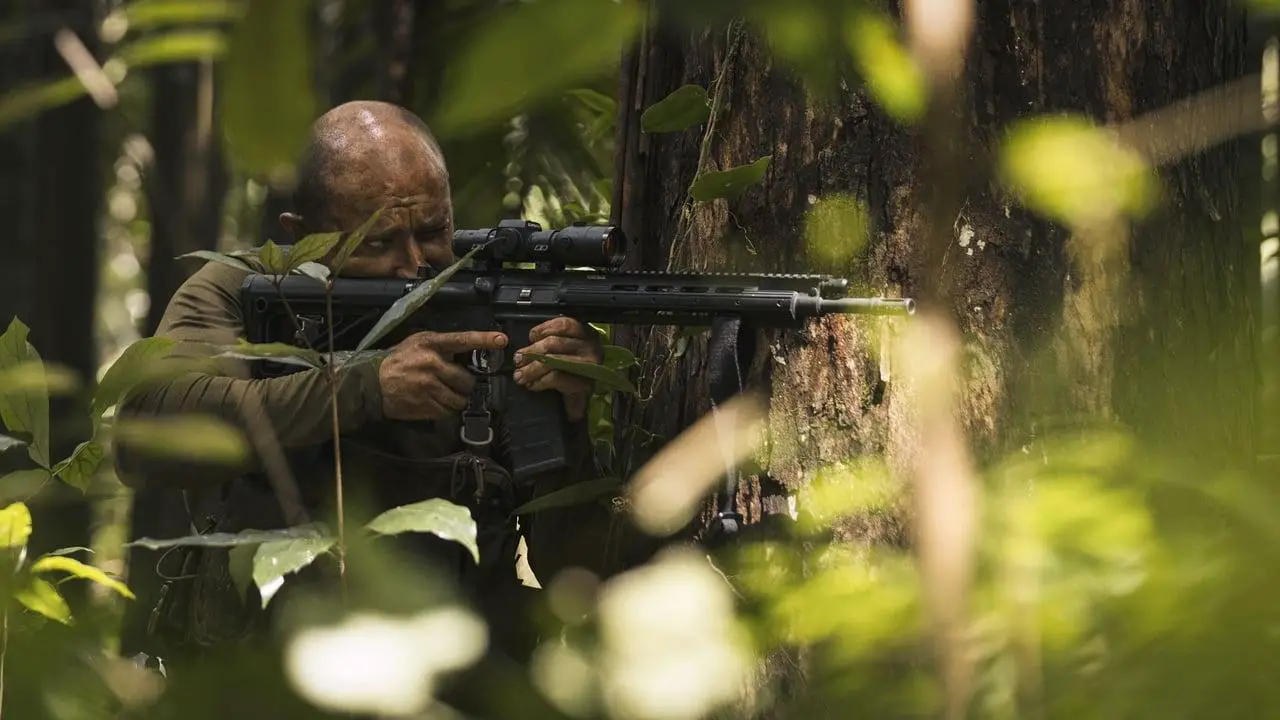The Essential Survival Skills by Anya Amasova !

In the clandestine world of espionage, spies often find themselves operating in perilous and unforgiving territories. To ensure their safety and success, these covert operatives must possess a unique skill set, encompassing everything from situational awareness to survival skills, combat prowess, and secure communication techniques. In this comprehensive guide, we explore the tactical survival skills that are crucial for spies operating in hostile environments. By understanding these essential skills, spies can enhance their ability to navigate treacherous landscapes and fulfill their missions with finesse.
Key Takeaways
- Spies operating in hostile environments must possess a diverse set of tactical survival skills to ensure their safety and success in dangerous situations.
- Situational awareness, stealth, and resourcefulness are essential for spies to navigate and survive in hostile territories.
- Evasion and escape tactics, coupled with combat and self-defense expertise, enable spies to evade capture and defend themselves when confronted with physical threats.
- Secure communication through encryption and steganography ensures that critical information remains confidential, while social engineering allows spies to gather valuable intelligence from within enemy organizations.
- Resourcefulness plays a vital role in a spy’s survival, enabling them to adapt and thrive even in challenging and resource-limited environments.
The Survival Skills by Anya Amasova from “The Spy Who Loved Me”
In the iconic James Bond film “The Spy Who Loved Me,” Anya Amasova, also known as Agent XXX, is a formidable spy with a wide array of survival skills. From her espionage tactics to her resourcefulness in dangerous situations, she demonstrates expertise in various areas. In this article, we will delve into the survival skills exhibited by Anya Amasova and explore their real-world applications.

1. Espionage and Intelligence Gathering
Anya Amasova’s ability to gather crucial intelligence is one of her greatest assets as a spy. She excels in covertly infiltrating organizations and obtaining sensitive information. Her techniques include:
- Social Engineering: Anya is a master at manipulating situations to her advantage, often using her charm and wit to gain trust and extract information from targets.
- Codebreaking and Cryptography: She possesses advanced skills in deciphering codes and encrypted messages, allowing her to access confidential data.
- Surveillance and Reconnaissance: Anya can discreetly observe and track her adversaries, gathering vital data without being detected.

2. Martial Arts and Combat Proficiency
Anya Amasova is a highly skilled hand-to-hand combatant and marksman, making her a formidable opponent in physical confrontations. Her expertise includes:
- Krav Maga: Anya’s proficiency in Krav Maga enables her to defend herself effectively and neutralize threats quickly.
- Firearms: She displays exceptional accuracy and handling of various firearms, making her a lethal agent in gunfights.
- Melee Weapons: Anya can proficiently use melee weapons such as knives and batons, adding versatility to her combat capabilities.

3. Survival Training and Adaptability
As a spy, Anya Amasova faces unpredictable and challenging situations regularly. Her survival skills are a testament to her adaptability and resourcefulness:
- Wilderness Survival: Anya can navigate and survive in diverse terrains, utilizing her knowledge of edible plants, water purification methods, and shelter building.
- Escape and Evasion: She excels in escaping from captivity and evading pursuit, making her a tough target for adversaries.
- Disguise and Identity Concealment: Anya is skilled at altering her appearance and creating convincing cover identities to operate covertly.

4. Technical Prowess and Gadgets
Anya’s expertise in handling cutting-edge gadgets and technology significantly aids her missions:
- Hacking and Electronics: She possesses a deep understanding of computer systems and can hack into secure networks to gather critical information.
- Vehicle Operation: Anya showcases her driving prowess in thrilling car chases, using various vehicles to escape dangerous situations.
- Q-Branch Gadgets: Similar to her colleague James Bond, Anya benefits from the innovative gadgets provided by Q-Branch, enhancing her espionage capabilities.

5. Multilingualism and Cultural Adaptation
Anya Amasova’s ability to speak multiple languages fluently is invaluable during her missions:
- Russian: As a Soviet intelligence officer, her native language is Russian, allowing her to blend seamlessly in Russian-speaking environments.
- English: Her fluency in English enables her to communicate effectively with international counterparts and infiltrate English-speaking organizations.
- Other Languages: Anya’s proficiency in other languages broadens her reach and allows her to navigate various cultural settings effortlessly.

In conclusion, Anya Amasova’s survival skills in “The Spy Who Loved Me” exemplify the qualities of a skilled and adaptable spy. Her mastery of espionage, combat, survival, technology, and languages make her a well-rounded and resourceful agent. These skills, though showcased in a fictional context, offer insights into the world of espionage and inspire us to appreciate the complexity and excitement of the spy genre.
Tactical Surviving Skills for Spies in Hostile Environments
In the dangerous world of espionage, spies often find themselves operating in hostile environments where their survival skills are put to the test. From evading capture to staying hidden in enemy territory, these tactical survival skills are crucial for a spy’s success and safety. In this comprehensive guide, we will explore essential techniques that spies employ to survive in hostile environments.
1. Situational Awareness and Stealth
Maintaining situational awareness is the first line of defense for spies operating in hostile environments. Being aware of surroundings and potential threats is vital. Here are some tactics for achieving optimal situational awareness:
- Observation: Spies are trained to keenly observe their surroundings, noting any changes or anomalies.
- Stealth Movement: Moving silently and avoiding noisy objects or terrain helps spies stay undetected.
- Camouflage: Learning to blend in with the environment through appropriate attire and disguises is essential.

2. Evasion and Escape
Spies must be adept at evading capture, especially in hostile territories. The following tactics aid in successful evasion and escape:
- Escape Routes: Always have multiple escape routes planned in case of emergency.
- Urban Evasion: Knowing how to navigate crowded urban environments without drawing attention is crucial.
- Rural Evasion: In wilderness areas, spies should know how to lose pursuers and survive without modern amenities.
3. Survival Skills and Resourcefulness
Surviving in hostile environments often means relying on one’s resourcefulness. Spies should possess a wide range of survival skills, including:
- Fire Starting: Knowing how to start a fire without matches or lighters is essential for warmth and cooking.
- Water Sourcing and Purification: Finding and purifying water in the wild is vital for survival.
- Shelter Building: Spies should be capable of constructing shelters using available materials.
- Edible Plants and Foraging: Identifying safe-to-eat plants and foraging for food is a valuable skill.
4. Combat and Self-Defense
In hostile environments, physical confrontations may be unavoidable. Spies should have adequate combat and self-defense skills:
- Hand-to-Hand Combat: Learning martial arts and defensive techniques improves chances of survival in close quarters combat.
- Firearms Proficiency: Spies should be skilled marksmen, capable of handling various firearms.
- Knife Fighting: Understanding knife combat and defense techniques is advantageous in hand-to-hand combat.

5. Communication and Encryption
Maintaining secure communication is crucial for spies. In hostile environments, they rely on encrypted channels:
- One-Time Pads: Using one-time pads ensures secure, unbreakable encryption of messages.
- Steganography: Hiding messages within seemingly innocent media, like images or audio files, adds an extra layer of security.
- Dead Drops: Spies use dead drops to exchange information without direct contact.
6. Social Engineering and Intelligence Gathering
Information is power, and spies excel at gathering intelligence through social engineering:
- Infiltration: Spies may assume false identities to infiltrate enemy organizations.
- Interrogation Resistance: Training to resist interrogation techniques is crucial if captured.
- Exploiting Weaknesses: Identifying and exploiting vulnerabilities in enemy systems or personnel aids intelligence gathering.
SOTG Charlie Tactical Tool Vest with Tools
FAQ
1. How do spies maintain situational awareness in hostile environments?
Maintaining situational awareness in hostile environments is crucial for a spy’s survival. Spies achieve this by constantly observing their surroundings, noting any changes or suspicious activities. They blend into the environment, using disguises or appropriate attire to avoid drawing attention. By moving stealthily and silently, spies reduce the risk of detection. Furthermore, they undergo extensive training to develop their observation skills and learn to interpret subtle cues that might indicate potential threats or danger. Staying aware of their escape routes and having contingency plans in place allows spies to respond swiftly to emergencies.
2. What survival skills are essential for spies in hostile territories?
Survival skills are indispensable for spies operating in hostile environments. Spies must be adept at starting fires without modern tools, sourcing and purifying water, building shelters, and foraging for food. These skills ensure they can survive in the wilderness without relying on external support. Additionally, knowing how to navigate urban environments discreetly is crucial to evade pursuers. Developing hand-to-hand combat expertise and firearms proficiency is essential for self-defense and protection against hostile forces. By mastering these skills, spies enhance their chances of completing missions even in the most challenging circumstances.
3. How do spies evade capture and escape in dangerous situations?
Evading capture and escaping dangerous situations require strategic planning and quick thinking. Spies should always have multiple escape routes planned, enabling them to disappear swiftly when needed. They utilize their knowledge of urban and rural environments to lose pursuers effectively. In wilderness areas, spies rely on their survival skills to sustain themselves during escape. Resourcefulness comes into play when using the environment to their advantage, setting traps or creating diversions to confuse their enemies. Successful evasion and escape rely on the spy’s ability to stay calm under pressure and adapt quickly to changing circumstances.
4. How do spies communicate securely in hostile environments?
Secure communication is paramount for spies operating in hostile territories. To ensure messages remain confidential, spies employ encryption techniques such as one-time pads, which generate unbreakable codes. They also use steganography to hide messages within innocent-looking media, adding an extra layer of security. To minimize direct contact, spies use dead drops, where information is left in concealed locations for other operatives to retrieve. These methods allow spies to maintain secure communication channels, preventing vital information from falling into the wrong hands.
5. What self-defense techniques do spies employ in physical confrontations?
In physical confrontations, spies rely on a combination of hand-to-hand combat skills and firearms proficiency. They undergo rigorous training in martial arts and defensive techniques to defend themselves effectively in close-quarters combat. Spies learn how to disarm opponents and neutralize threats swiftly. Firearms training ensures they can handle various weapons accurately and with precision. Additionally, they master the art of knife fighting, making them competent in both armed and unarmed confrontations. These self-defense techniques are vital for spies, as they often find themselves in life-threatening situations during their missions.
6. How do spies gather intelligence through social engineering?
Social engineering is a key aspect of intelligence gathering for spies. By assuming false identities, spies infiltrate enemy organizations to access sensitive information. They use their charm and wit to manipulate individuals and gain their trust, extracting valuable data without raising suspicion. Additionally, spies learn how to resist interrogation techniques if captured, safeguarding critical information. They identify weaknesses in enemy systems or personnel and exploit them to gather intelligence discreetly. Social engineering allows spies to acquire vital information that would be otherwise inaccessible through conventional means.
7. What role does resourcefulness play in a spy’s survival?
Resourcefulness is a crucial trait for spies operating in hostile environments. When faced with challenges, spies must think on their feet and utilize available resources creatively. In situations where modern tools are unavailable, resourcefulness allows them to survive by finding alternative ways to meet their needs. Whether it’s constructing a shelter using natural materials or improvising tools for survival, resourcefulness enables spies to adapt to the environment effectively. This trait complements their training and skills, making them more versatile and capable of overcoming unforeseen obstacles.
8. How do spies handle the psychological toll of operating in hostile environments?
Operating in hostile environments can take a significant psychological toll on spies. To cope with the stress and pressure, they undergo specialized training to build mental resilience. Learning to compartmentalize emotions allows spies to focus on their mission without being overwhelmed by fear or anxiety. Additionally, debriefing and support from fellow operatives or psychological experts provide a safe space for spies to process their experiences. Mindfulness and meditation techniques are also employed to help spies stay centered and focused during high-stress situations.
9. What steps do spies take to minimize the risk of compromise?
Minimizing the risk of compromise is crucial for spies. They adhere to strict protocols to protect their identities and missions. Spies maintain a low profile and avoid drawing attention to themselves. Regularly changing their appearance and using cover identities adds another layer of protection. Additionally, spies limit their digital footprint and communication, reducing the chances of exposure to adversaries. Constantly assessing potential risks and adjusting their strategies accordingly helps them stay one step ahead of threats.
10. How do spies prepare for missions in hostile territories?
Preparation is key for spies before embarking on missions in hostile territories. They conduct thorough intelligence gathering and reconnaissance to understand the environment and potential threats. Spies ensure they have the necessary survival gear and equipment, customized for each mission’s specific challenges. Extensive training in combat, survival skills, and secure communication ensures they are well-prepared for any scenario. Additionally, they develop contingency plans to respond to unforeseen events effectively. Comprehensive preparation enhances a spy’s chances of success and safety during missions in hostile environments.










9 Comments